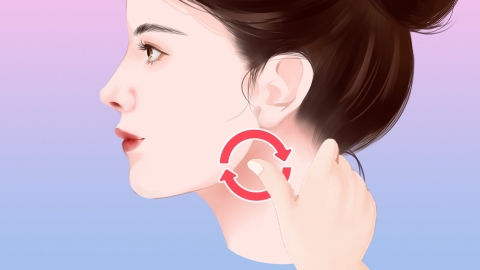What are the causes of thyroid cancer?
Under normal circumstances, thyroid cancer may be caused by factors such as aging, gender differences, abnormal iodine intake, Hashimoto's thyroiditis, and thyroid adenoma. If discomfort symptoms occur, it is recommended to seek timely diagnosis and treatment at a reputable hospital. Detailed analysis is as follows:
1. Aging
As people age, the functions of various organs gradually decline. Long-term exposure to various internal and external factors may increase the risk of abnormal cell mutations in thyroid tissue, possibly leading to thyroid cancer. It is important to maintain a regular lifestyle and avoid excessive fatigue.
2. Gender Differences
Hormone levels in women fluctuate more frequently, and hormones such as estrogen may stimulate thyroid cells, making women slightly more susceptible to thyroid cancer than men. Women should pay more attention to thyroid health, maintain a positive emotional state, and avoid prolonged anxiety or depression.

3. Abnormal Iodine Intake
Long-term excessive or insufficient iodine intake can affect normal thyroid physiological functions, leading to abnormal thyroid tissue proliferation and increasing the risk of thyroid cancer. Daily iodine intake should be controlled reasonably, and appropriate types of salt should be selected based on individual conditions.
4. Hashimoto's Thyroiditis
Hashimoto's thyroiditis is an autoimmune disease. Long-term inflammatory stimulation of thyroid tissue leads to repeated damage and repair of thyroid cells, which may cause cell mutations and increase the likelihood of developing thyroid cancer. When hypothyroidism occurs, medications such as levothyroxine sodium tablets or thyroid tablets should be used under a doctor's guidance, while ensuring adequate rest and avoiding infections.
5. Thyroid Adenoma
Although thyroid adenoma is a benign tumor, in some cases it may undergo malignant transformation and develop into thyroid cancer. Adenoma cells may experience abnormal changes under long-term growth and various influencing factors. If the adenoma is large or grows rapidly, timely medical consultation is necessary, and surgical removal may be required. If accompanied by hyperthyroidism, medications such as methimazole tablets, propylthiouracil tablets, or carbimazole tablets may be used under a doctor's guidance to control the condition.
In daily life, exposure to radioactive substances should be avoided to reduce radiation stimulation to the thyroid; maintain healthy dietary habits and avoid excessive consumption of spicy, greasy, or other irritating foods; and engage in appropriate physical exercise to enhance immune function.









